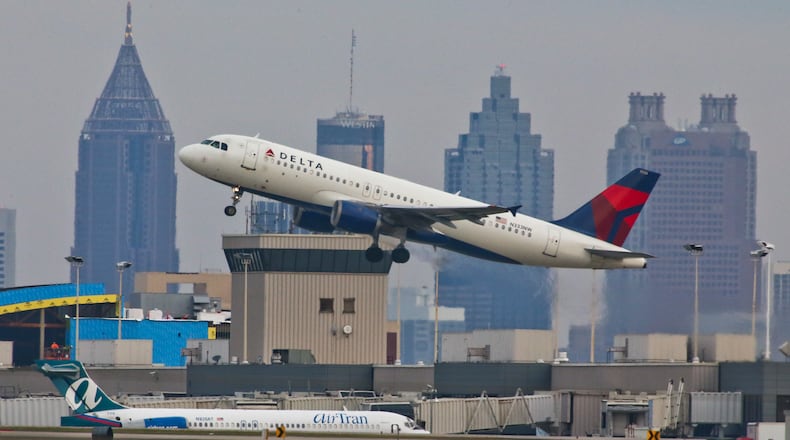Now that they’ve lost millions of dollars in jet fuel taxes from the world’s busiest airport, Clayton County and its school district are getting lifelines from two different sources.
The Clayton County Commission on Tuesday accepted $26.8 million from the state of Georgia — the amount three years of fuel tax collections would have brought in. And Delta Air Lines has pledged an unspecified amount to help the county’s school system.
The county government and school board split $18 million annually in jet fuel collections, using the money for parks, roads, school buses, technology improvements at the district’s schools and other projects.
But last week, Gov. Nathan Deal announced that the municipal collections on jet fuel, a practice that has drawn the ire of the Federal Aviation Administration, would end July 1. He said the move will help ensure Georgia doesn't lose federal transportation funding in the future for not complying with FAA regulations.
Clayton County leaders had filed suit against the FAA, seeking to continue the tax collections, but simultaneously went to Deal during the recent legislative session to seek financial help if they lost.
The 11th Circuit Court of Appeals dismissed the case in April. The FAA argued the revenue should be used for the airport from which it is collected, not for the county in which the facility is located.
“The best outcome for us would have been that we won our fight with the FAA and to collect the jet fuel tax for years to come,” Clayton Commission Chairman Jeff Turner said. “But with the governor about to sign an executive order to cease the collection of the jet fuel tax, that put us in a precarious situation where we’re looking at either some money or no money.”
Clayton Schools Superintendent Morcease Beasley said that Delta has committed to help during the 2019 school year, but did not yet have full details on how much the airline would give because the parties are still negotiating.
In thanking Delta for its support, Beasley said the revenue is “vital to the community and school district.”
Airlines and cargo companies at Hartsfield, including Delta, are expected to save more than $20 million a year because of the change. Delta on Monday pledged to make contributions to local school districts impacted by the fuel tax elimination to “help ensure the funding of existing education projects,” according to reports.
Turner said he thinks the rebound in Clayton property values will make up some of the loss. If that doesn't cover it all, the county may have to make cuts to departmental budgets.
His biggest hope, however, is that the county can find another way to get revenue from Hartsfield either through taxes or payments for services Clayton provides, such as a jail for anyone arrested at the airport.
“We feel like we’re definitely not getting our fair share of money out of the airport that we should,” Turner said.
About the Author
Keep Reading
The Latest
Featured

